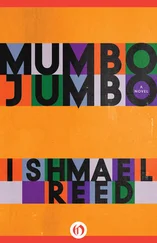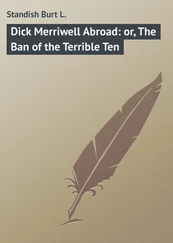“Because the real Black Peter is back in action. He’s going about the United States performing intimate miracles. He arrived there to deal with the other Black Peter, but he usually becomes diverted from his true goals; he just can’t resist helping those in distress.”
“So Nick is probably going to show up on the scene too?”
“You know what a ham he is. How he likes to make appearances.”
“This couldn’t happen at a worse time. We’re in a great contest with the Antichrist, a great eternal adversary, and we’re losing the battle.”
“There’s also a little matter about cash, Your Excellency. Our debtors say they can’t wait any longer and they’re going to attach a lien to some of our property.”
“Can’t they understand, Malidori, that we’re locked in a struggle that goes on twenty-four hours per day, that he is using subterfuge to undermine our belief in absolutes, that relativism, deconstructionism, positivism, and other philosophies are winning over intellectuals of the West? They don’t realize that Satan is real! That Satan is behind deconstructionism, genetic engineering, liberation theology, and prochoice. The devil is behind this move to bring us down!”
“Yes, Your Holiness, I understand that, but the creditors are simple, crude men. They’re threatening to turn Saint Peter’s into a hotel. They want to turn Vatican City into a complex of motels, shopping malls, and upscale boutiques. Surely Satan can wait—”
The Pope’s blue eyes cut Malidori like a laser, and his hair seemed to be in flames. Malidori withered under the Pope’s presence. The Pope was feeling pretty good up to that moment. In fact, he’d felt good all day, whistling over his breakfast, even eliciting stares from the other cardinals. The night before, he dreamed that he’d returned to his apartment after a full day, and the Virgin was sitting on his bed. All she was wearing was a head covering, and she took that off too. After she removed it she shook her hair, and the hair fell across her back. He woke up and the sheets were bloody. He didn’t tell anybody. “I’m sorry, Your Excellency, I misspoke.”
The Pope went to the window and stared out over the plaza. Pigeons were walking about the fountain, and there were tourists looking up at his balcony, or taking pictures.
“Malidori.”
“Yes, Your Excellency?”
“How do you, well, the devil, how do you suppose he looks?”
Malidori paused. He stroked his goatee. “I imagine him to look like Billy Dee Williams, the American actor, an absolutely fascinating and devastating charmer.”
“Malidori, I want to be alone.” Malidori exited, bowing and crossing himself. If they knew about his dream, the Italians and the Spanish would read him out of the Church. It was along about three in the morning. He was restless. He was about to go to the chapel when the infernal one stood before him. He was built like a wrestler, and wore black leotards and black boots. He had the head of a goat. And what he did to him made him feel so delicious that he was wondering about his sanity. Again, the devil offered him the contract, but Malidori had enough self-control not to sign.
But he was getting weak. How long would he be able to hold out?
Fryer Moog awoke, or rather came to. He heard a quiet snare. He looked up and on the other side of the room, sitting at the drums, accompanying a short man wearing dark glasses and playing the trumpet like an angel, was the man who, in admiration, many musicians called Klook-a-Mop.
“Hey, dudes, what’s happening,” Moog said, or something maybe even cornier, “Klook-a-Mop, my man,” he continued. He tried to rise and approach the dark corners of the room where the two men were playing what sounded like “A Night in Tunisia,” but Moog fell over on his back. Klook-a-Mop glanced up at the other man whose black velvet wings stuck out from beneath his armpits. He was going over some passages with a muted trumpet.
“You always was a corny Negro,” Klook said. Klook was also short and dark. He looked more like a church deacon than a jazz musician. He was wearing a rich Parisian silk scarf, navy blue double-breasted jacket and grey slacks. He was dressed like Jelly Roll Morton, in the famous photo where Jelly holds a baton as though it were a magic wand. “Look at that shit all over you, and that music these people in Hollywood got you writing sound like audio heroin or something.” The trumpeter wandered off into the darkness of the room, and played to himself, softly. “I remember you when you came into Dizzy’s band. You were seventeen then. You were writing these strange but fresh arrangements, and you played some good trombone, too. You lived in that dingy walk-up on the Lower East Side. You must have been about 140 pounds.”
“But I had to grow, Klook. I’m doing better than that. I’m rich and famous. They play my stuff all on the radio. I get a Grammy every year. I have a house that’s like the castle at Disneyland. I’m driving three Rolls Royces. One of them has gold wiring in it.”
“Yeah, but where are you in the music? Where’s Moog? If it weren’t for that synthesizer where would you be? Shit sounds tingly like the stuff they play in amusement parks. The music has as much sound as a toy xylophone, and has no personality, no individuality. And that boy. Man, you’ve ruined him. Sucker go around wearing an S and M mask with a zippered mouth, and spent five million dollars jetting his entourage to Australia so’s he could find a pygmy dinosaur. He wants to prove that the birds descended from the dinosaurs.” The musician in the shadows burst out laughing. “Ain’t nothing but a freak. I smell you all the way over here, you stink so. That free basing has brought you lower than a fucking sewer rat. Where’s your dignity?”
“You’re jealous, that’s all,” Moog answered, his speech slurred. “You went to Europe because you couldn’t make it here. I know all about you. You’re like the rest of them. Mad about my success. Those pictures I’ve made and—”
“Yeah. Those pictures. You and these black people down here in Hollywood do anything for cash, huh?” Klook shook his head. “No use trying to persuade you. Man, I feel sorry for you. All that talent. A musical cripple, relying on machines. I’ll bet you haven’t picked up your horn in years.”
“But this is the new thing. I mean, this is what’s happening. I don’t need no musicians. It saves money. Don’t you understand, money.” But nobody was there to listen. Klook and his trumpet-playing friend disappeared. And in his place stood Black Peter.
“Listen to him, Moog. He was trying to tell you something.”
“Who are you,” Fryer Moog said. Black Peter stood in the corner. “How did you get in here. I locked every door. So, you another nigger trying to give me advice. I don’t need no advice. I don’t need none of you niggers. I got Grammies and Emmies. I made one million dollars last year—”
“Yeah, and it all went to you and the free basing activities of your friends. Your brain has abandoned you. All it does now is turn tricks for hubba. You’ve given up your life and your career for a few hits of the pipe.”
Moog began to sob.
“If you took a CAT scan right now you’d discover all of the little strokes you’ve had. Do you know why you gave your computer away and forgot it, forgot about your bills — it’s because you don’t remember things with that bile in your brain.” Black Peter flashed an image to the wall. It was Fryer Moog in one of the great 50s big bands, blowing a trombone solo that wouldn’t quit, as rich as Frank Rossolino’s, as sensual, humorous, and funky as Bennie Green’s, and as technically dexterous as J.J. Johnson’s, with Jimmy Cleveland’s speed and Kai Winding’s melancholy and irony.
Читать дальше












